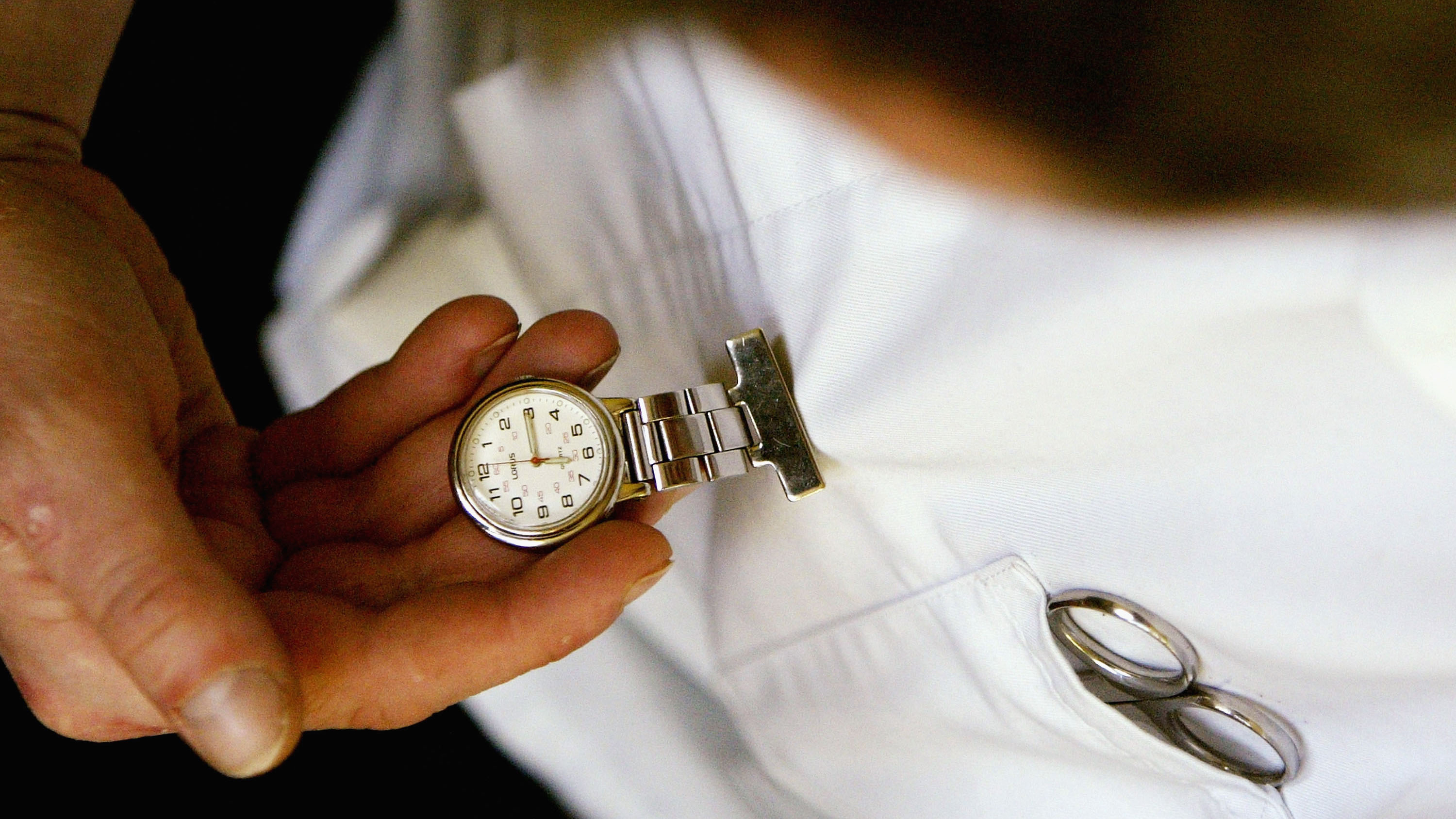Cameron hits back after nurses brand reforms ‘stupid’
David Cameron says most people agree that would-be nurses should spend time as a healthcare assistant before starting their training, after a union leader calls the reforms a “stupid idea”.

The government’s proposal to reform nurses’ training was a key part of its response to the Francis inquiry into the Mid-Staffordshire scandal.
David Cameron defended the proposal on Monday afternoon saying that day-to-day care tasks were “absolutely vital to get right” in hospital.
Under the government’s plan, nurses would spend one year washing and feeding patients as a healthcare assistant, before beginning their NHS training.
“I think most people in the country, and indeed most nurses in the country, will think that it’s right that when we train people to be nurses they spend some time doing hands-on care in hospitals, in care homes, in places where people need care,” he said, speaking during a Cameron Direct event in Long Eaton, Derbyshire.
At the heart of being a great nurse is real care for patients. David Cameron
“I want us to learn the lessons from the Stafford Hospital disaster and make sure we train caring nurses now and into the future. At the heart of being a great nurse is real care for patients.”
The prime minister’s comments follow those made by the president of the Royal College of Nursing (RCN) Andrea Spyropoulos, who called the proposal “stupid” and said it would set back the profession.
“It is an unbelievable thing to introduce that takes nursing back a hundred years. It is a waste of taxpayers’ money that will have absolutely no benefit to patients whatsoever,” said Ms Spyropoulos.
“I was astounded, I remain astounded and I think it was a really stupid idea.”
The RCN accused the government of missing out on the opportunity to reform the system after the Francis inquiry and improve patient care.
Read more from Victoria Macdonald: Unanswered questions over Mid-Staffs
Francis report
Health Secretary Jeremy Hunt also rejected the criticism, telling the BBC: “They (the RCN) were severely criticised in the Francis report…as being an organisation that had been too focused on its trade union responsibilities, and not focused enough on its responsibility as a royal college to raise professional standards.”
The final report into one of the biggest scandals in the history of the NHS found that between 400 and 1,200 more deaths occurred at the hospital between 2005 and 2009 due to incompetence and neglect.
Without a doubt understaffing is the single biggest challenge facing the NHS today. Dr Peter Carter, RCN chief executive
Robert Francis made 290 recommendations in his final report published in February. But this did not include the government’s subsequent “care assistant” proposal for the reform of nurses’ training that the RCN has criticised so strongly.
The government’s response to the report included a statutory duty of candour, a new ratings systems for hospitals and care homes, and a code of conduct for healthcare assistants.
‘Mandatory safe staffing levels’
The accusations comes as a poll of nurses suggests that low staffing levels could lead to unsafe levels of care.
A poll of 8,000 RCN members found that 90 per cent believed staffing levels were not always at the right level to provide safe care to patients, while almost a third said they were rarely or never safe.
Nine in 10 nurses said they would support the introduction of mandatory staffing levels to protect patient safety.
“Without a doubt understaffing is the single biggest challenge facing the NHS today,” said Dr Peter Carter, RCN chief executive and general secretary.
“The introduction of mandatory safe staffing levels, enshrined in law is now a matter of extreme urgency. Mandatory staffing levels are proven to reduce patient mortality. With correct management, flexibility and transparency there is no reason that introducing mandatory staffing levels will become a “race to the bottom” as some have described it. It is no less than patients deserve.
“Robert Francis rightly highlighted in his report that ward sisters will be crucial in driving improvements in care, and this means the Government must listen to their concerns.”